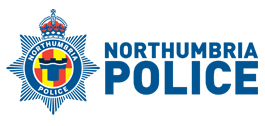DEGREE HOLDER PROGRAMME
Is the degree holder programme right for you?
The 999 response graduate pathway
If you’re a graduate who opts to be a 999 response officer, here’s what you can expect from the two-year training programme:
The neighbourhood graduate pathway
If you’re a graduate who opts to be a neighbourhood officer, here’s what you can expect from the two-year training programme:
Frequently asked questions
Take your first steps into policing
Before you apply to become a 999 response officer, detective or neighbourhood officer you’ll need to join a mandatory information event.
Here, you’ll gain insight into what working at Northumbria Police is really like, find out more about the application process and how to prepare for the role, eligibility requirements, police officer pay & benefits, and you’ll have the opportunity to speak to current officers.
Choose your preferred date below to sign up to an upcoming Teams, online event.
Can’t make these sessions? We’ll be running events all year, check back for later dates.
